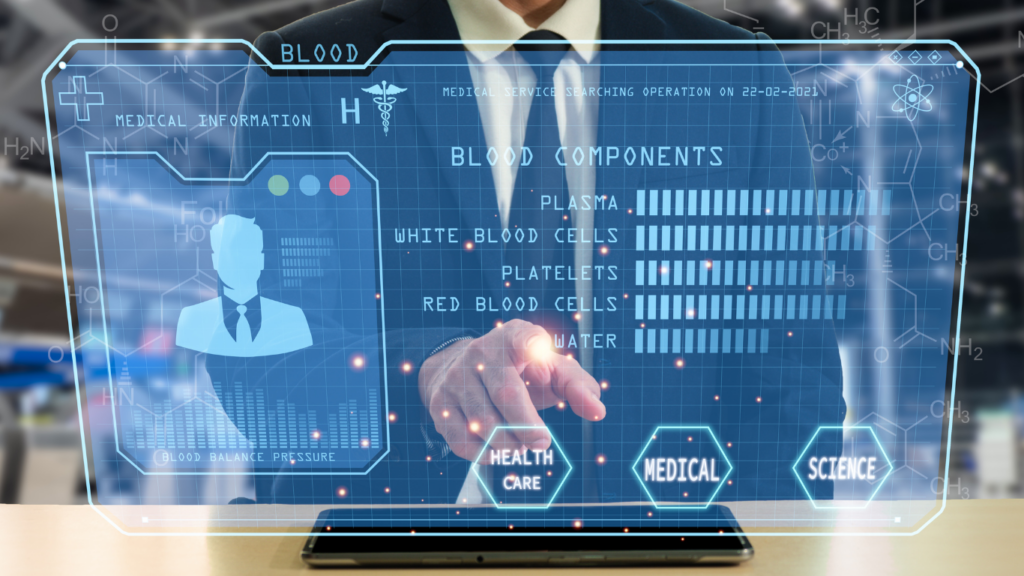Emerging Technologies in Healthcare
Innovations in healthcare tech are continuously expanding, introducing groundbreaking tools that redefine patient care and medical practices.
Artificial Intelligence and Machine Learning
AI and machine learning are transforming diagnostics by providing precise analysis of medical images. Algorithms can identify anomalies in X-rays, MRIs, and CT scans faster than human radiologists. AI-powered systems also enhance predictive analytics, allowing early detection of conditions like cardiovascular diseases and diabetes. In oncology, machine learning assists in tailoring personalized treatment plans by analyzing genetic data.
Telemedicine and Virtual Care
Telemedicine removes geographic barriers, making healthcare accessible to remote areas. Patients consult doctors through video calls, expanding care for chronic conditions and routine checkups. Virtual care platforms also support mental health services, offering therapy sessions online. This reduces the need for in-person visits, lowering healthcare costs and increasing convenience.
Wearable Health Devices
Wearable devices, like smartwatches and fitness trackers, monitor vitals like:
- heart rate
- blood pressure
- sleep patterns
These devices send real-time health data to medical professionals, enabling proactive health management. Patients with chronic illnesses, such as diabetes or hypertension, benefit from continuous monitoring. Wearables also encourage healthier lifestyles by tracking physical activity and sleep quality.
Technological advancements in these areas are not just trends but essential components of modern healthcare.
Breakthroughs in Medical Devices
Innovations in medical devices are transforming healthcare delivery. These advancements improve accuracy, efficiency, and patient outcomes.
Advanced Diagnostic Equipment
- Modern diagnostic equipment leverages cutting-edge technology for precise and timely diagnoses.
- Devices like MRI machines with AI integration analyze scan data faster than ever, enabling early detection of diseases.
- Advanced ultrasound machines now provide high-definition images, aiding in better diagnosis of internal conditions.
- Portable diagnostic tools, such as handheld ultrasound devices, allow healthcare providers to perform initial assessments in a variety of settings, reducing the need for patient transportation.
Robotic Surgery Systems
Robotic surgery systems are enhancing surgical precision and reducing recovery times. Tools like the Da Vinci Surgical System provide surgeons with enhanced vision, surgical precision, and control. These systems enable minimally invasive procedures, which lead to smaller incisions, less pain, and quicker recovery for patients. Robotic systems are used in various specialties, including urology, gynecology, and cardiology, highlighting their versatility and effectiveness in modern surgical practices.
Portable Monitoring Tools
Portable monitoring tools empower patients to manage their health more proactively. Devices like continuous glucose monitors (CGMs) provide real-time glucose readings for diabetes management. Wearable ECG monitors detect abnormal heart rhythms, allowing for prompt medical intervention. Portable blood pressure monitors help patients track their cardiovascular health accurately. These tools not only increase patient engagement but also facilitate remote monitoring by healthcare providers, improving overall care quality.
For more comprehensive patient care, these breakthroughs in medical devices represent a significant leap forward in technology’s role in healthcare.
Software Innovations in Healthcare

Healthcare software innovation is driving significant strides in patient care and management. New technologies optimize processes, enhance data security, and improve patient outcomes.
Electronic Health Records (EHR) Systems
EHR systems centralize patient data to streamline access. With these systems, healthcare providers access complete medical histories, enabling more accurate diagnoses and treatment plans. For example, Epic and Cerner are prominent EHR providers offering comprehensive solutions. EHRs also facilitate improved communication among providers, minimizing errors and redundancies.
Predictive Analytics
Predictive analytics uses historical data to forecast future health outcomes. This technology enables early intervention and better resource allocation. For instance, IBM Watson Health uses predictive analytics to identify potential disease outbreaks and patient deterioration risks. Hospitals employ predictive models to optimize staffing and reduce patient wait times, enhancing overall efficiency.
Blockchain for Data Security
Blockchain technology ensures data integrity and security in healthcare. It creates tamper-proof records, enhancing patient data protection. IBM Blockchain and Guardtime are examples of companies implementing this technology. Blockchain also enables secure sharing of medical records among authorized users, reducing the risk of data breaches and ensuring compliance with regulations like HIPAA.
These software advancements represent critical steps toward a more efficient, secure, and responsive healthcare system, reinforcing the indispensable role of technology in modern healthcare.
Revolutionary Treatments and Therapies
Innovations in healthcare tech have paved the way for groundbreaking treatments and therapies. These advancements promise more effective, individualized patient care.
Gene Editing and CRISPR
Gene editing, particularly using CRISPR (Clustered Regularly Interspaced Short Palindromic Repeats), is transforming genetics. CRISPR allows precise modification of DNA, offering potential cures for genetic disorders. Researchers are exploring CRISPR’s applications in treating diseases like cystic fibrosis and muscular dystrophy. Clinical trials are ongoing, and early results show promise for this cutting-edge technology.
Personalized Medicine
Personalized medicine tailors treatments to individual genetic profiles. This approach enhances effectiveness and reduces side effects. Healthcare providers use genetic screening to develop specific therapies for conditions like cancer and heart disease. By considering unique genetic markers, personalized medicine ensures patients receive optimal care based on their genetic makeup.
Immunotherapy Advances
Immunotherapy harnesses the body’s immune system to fight diseases, particularly cancer. Advances in immunotherapy include checkpoint inhibitors and CAR-T cell therapy. Checkpoint inhibitors help the immune system recognize and attack cancer cells, while CAR-T cell therapy involves modifying a patient’s T cells to target cancer. These therapies have shown substantial success in treating cancers such as melanoma and lymphoma, offering new hope to patients.
Challenges and Ethical Considerations
Innovations in healthcare technology come with several challenges and ethical considerations. Addressing these is crucial for achieving sustainable and equitable advancements.
Data Privacy Concerns
Data privacy in healthcare tech involves ensuring patient information remains confidential and secure. With the increased use of Electronic Health Records (EHR) and wearable health monitors, the risk of data breaches also rises. For instance, unauthorized access to sensitive patient data can lead to identity theft and loss of trust in healthcare providers. According to a report by Protenus, 41.4 million patient records were breached in 2019 alone. Implementing robust encryption methods and strict access controls mitigates these risks.
Accessibility and Equity
Accessibility and equity are vital for ensuring that technological advancements benefit all population segments. Innovative tools should be available to underserved communities to bridge the healthcare gap. However, many rural and low-income areas lack access to advanced diagnostics and treatments. A study by the National Bureau of Economic Research indicated that providers in high-income areas are more likely to adopt new technologies compared to those in low-income regions. Policies that promote tech equity and programs that subsidize essential tools can help address this issue.
Regulatory Hurdles
Regulatory hurdles pose significant challenges to the deployment of new healthcare technologies. These include stringent approval processes and compliance with diverse international standards. For instance, the FDA requires extensive clinical trials to approve new devices, which can delay implementation. Maintaining patient safety and efficacy without stifling innovation is a delicate balance. Streamlined regulations and global harmonization facilitate quicker, safer adoption of healthcare innovations.





